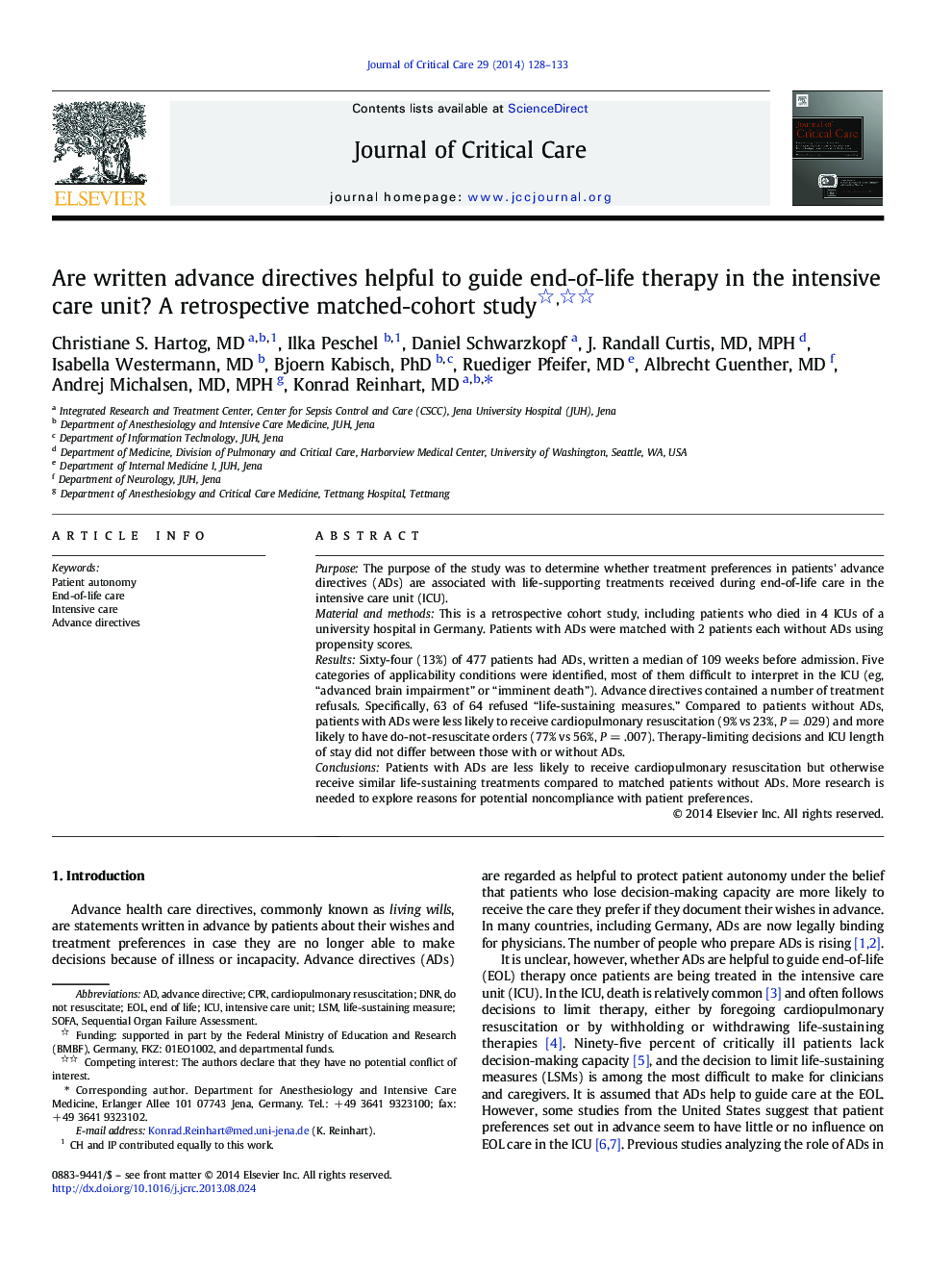| Article ID | Journal | Published Year | Pages | File Type |
|---|---|---|---|---|
| 2764667 | Journal of Critical Care | 2014 | 6 Pages |
PurposeThe purpose of the study was to determine whether treatment preferences in patients' advance directives (ADs) are associated with life-supporting treatments received during end-of-life care in the intensive care unit (ICU).Material and methodsThis is a retrospective cohort study, including patients who died in 4 ICUs of a university hospital in Germany. Patients with ADs were matched with 2 patients each without ADs using propensity scores.ResultsSixty-four (13%) of 477 patients had ADs, written a median of 109 weeks before admission. Five categories of applicability conditions were identified, most of them difficult to interpret in the ICU (eg, “advanced brain impairment” or “imminent death”). Advance directives contained a number of treatment refusals. Specifically, 63 of 64 refused “life-sustaining measures.” Compared to patients without ADs, patients with ADs were less likely to receive cardiopulmonary resuscitation (9% vs 23%, P = .029) and more likely to have do-not-resuscitate orders (77% vs 56%, P = .007). Therapy-limiting decisions and ICU length of stay did not differ between those with or without ADs.ConclusionsPatients with ADs are less likely to receive cardiopulmonary resuscitation but otherwise receive similar life-sustaining treatments compared to matched patients without ADs. More research is needed to explore reasons for potential noncompliance with patient preferences.
